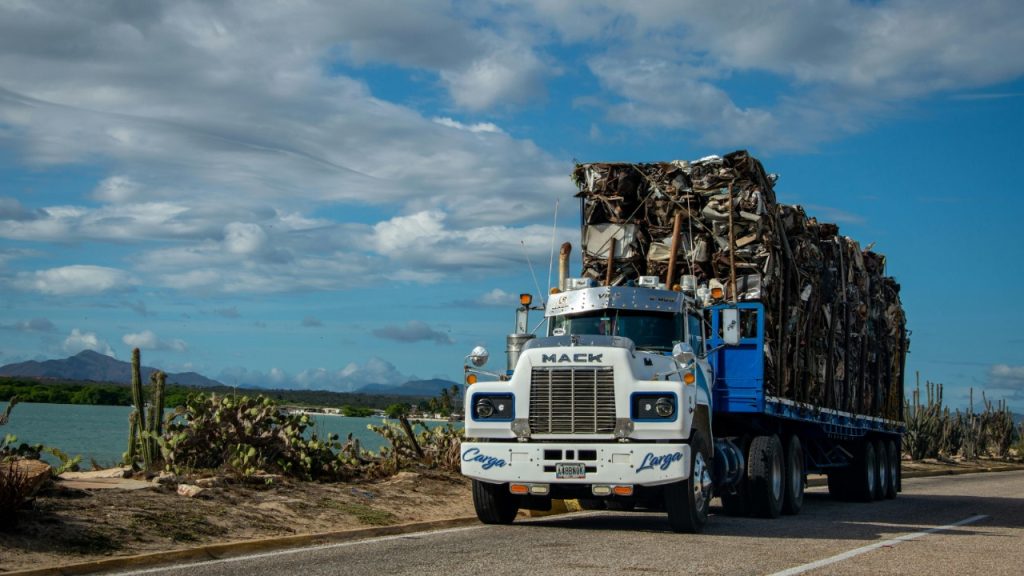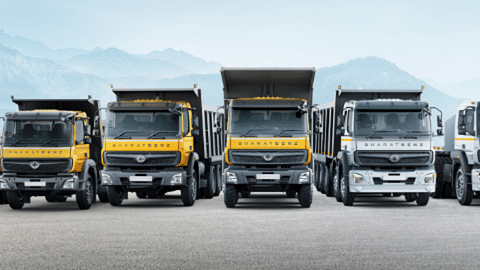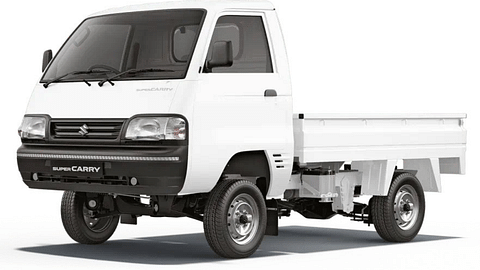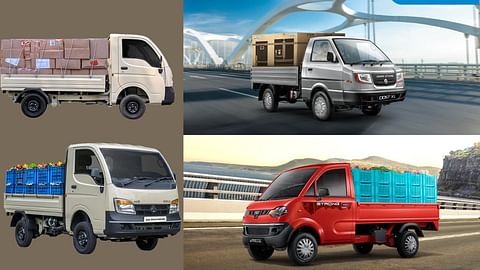The Role of Trucks in Modern Logistics and Key Industries

Trucks form the backbone of modern logistics and are used across various industries with an indispensable role in the process of efficiently moving goods, equipment, and resources. From agriculture and construction to retail and health care. Trucks ensure supply chains work smoothly, thus driving growth in economies and development for societies. This article discusses their pivotal use in key industries and explains why they are truly indispensable for industrial operations.
1. Trucks in the Transport and Logistics Industry
In the transport and logistics industry, trucks play an important role in moving commodities efficiently. In fact, trucks comprise 75% of inland freight transportation in Europe. According to ACEA, the European Automobile Manufacturers' Association, trucks deliver raw materials to finished products on time to manufacturers, retailers, and consumers.
2. Trucks in the Construction Industry
Trucks are widely used in the construction sector to move large equipment, supplies, and machinery to and from project sites. For building projects, trucks are necessary for transporting raw materials, including steel, concrete, gravel, and sand.
3. Trucks in the Agriculture Sector
Trucks are necessary for agricultural crops, livestock, and farm equipment. Trucks are highly important during harvest seasons, where large amounts of perishable produce must be transported promptly to processing centers or markets.
4. Trucks in the Manufacturing Industry
Trucks help manufacturing industries supply raw materials to factories and deliver the final products to warehouses and retailers. Supply chains in the manufacturing industries are time-bound. Trucks ensure materials are supplied as per production schedules.
5. Trucks in the Retail Sector
The retail industry depends on trucks to restock stores, supply warehouses, and fulfill orders online. In retail operations, timely delivery is expected to meet consumers' needs and avoid out-of-inventory situations.
6. Trucks in the Energy Industry
The energy industry requires special trucks for delivering fuel, equipment, and resources needed in energy production and delivery. Trucks are the principal vehicles for oil and gas, renewable energy, and mining industries.
7. Trucks in the Healthcare Industry
The healthcare sector depends on trucks to deliver medical supplies, pharmaceuticals, and equipment to hospitals, clinics, and pharmacies. Trucks are used for transporting temperature-sensitive medicines, vaccines, lab samples, and medical devices like MRI machines and hospital beds.
8. Trucks in Waste Management
Trucks are used extensively by waste management services to collect, move, and dispose of both liquid and solid waste, which is essential for maintaining clean communities and assisting with recycling programs. Hazardous waste trucks are meant to transport toxic or dangerous items in a safe manner, whereas garbage trucks are made to collect and dispose of commercial and residential waste. Paper, glass, and plastics are among the recyclable commodities that recycling trucks gather. Reducing environmental pollution and preserving public health depend on effective garbage collection and disposal.
Conclusion

Trucks are dependable, adaptable, and able to reach far-flung locations that are inaccessible to other forms of transportation like ships or trains. They facilitate just-in-time delivery, which is essential for sectors with strict deadlines. They are the most favored method of freight transportation worldwide due to their versatility across a range of sectors.
Latest Truck News
View All Truck NewsRecent Posts
- टाटा 1816 LPT की कीमत, माइलेज और लोड कैपेसिटी: पूरी जानकारी
- Tata 1816 LPT Price, Mileage, and Load Capacity: Everything You Need to Know
- Truck Makers Collaborate with Amazon, Amul & Others for Electric Small Commercial Vehicles
- Top 5 Bharat Benz Trucks for Heavy-Duty Applications in 2025
- टॉप 5 BharatBenz हैवी-ड्यूटी ट्रक्स 2025 के लिए
- मारुति सुजुकी ने सुपर कैरी मिनी ट्रक में ईएसपी जोड़कर सुरक्षा बढ़ाई
- Maruti Suzuki Boosts Safety with ESP in Super Carry Mini Truck
- भारत में सबसे ज्यादा बिकने वाले हल्के वाणिज्यिक वाहन (LCV): टाटा ऐस बनाम महिंद्रा जीतो बनाम अशोक लेलैंड दोस्त
- Best Selling Light Commercial Vehicles (LCVs) in India: Tata Ace vs. Mahindra Jeeto vs. Ashok Leyland Dost
- महिंद्रा स्कॉर्पियो एन ग्लोबल पिकअप ट्रक टेस्टिंग के दौरान देखा गया – इंजन, फीचर्स, लॉन्च और भारत में संभावित कीमत
Popular Three Wheelers Brands
 Altigreen
Altigreen Euler Motors
Euler Motors Mahindra
Mahindra Piaggio
Piaggio Bajaj
Bajaj Greaves Mobility
Greaves Mobility ATUL
ATUL TVS
TVS Omega Seiki Mobility
Omega Seiki Mobility Kinetic
Kinetic Lohia
Lohia JSA
JSA YC Electric
YC Electric Udaan
Udaan SN Solar Energy
SN Solar Energy Saarthi
Saarthi Teja (Powered by Greaves)
Teja (Powered by Greaves) Jezza Motors
Jezza Motors GreenRick
GreenRick City Life Electric
City Life Electric Ampere
Ampere Baba Electric
Baba Electric E-Ashwa
E-Ashwa Bahubali E Rickshaw
Bahubali E Rickshaw Dabang
Dabang Deltic
Deltic Keto Motors
Keto Motors Mini Metro
Mini Metro Gayam Motors
Gayam Motors Gem EV
Gem EV Gkon Automotive
Gkon Automotive Skyride
Skyride Thukral Electric
Thukral Electric Baxy
Baxy Eblu
Eblu Hexall
Hexall Joy
Joy Montra
Montra Star
Star Dandera
Dandera EKA
EKA Khalsa
Khalsa Hero
Hero- Zero21
91trucks is a rapidly growing digital platform that offers the latest updates and comprehensive information about the commercial vehicle industry.







